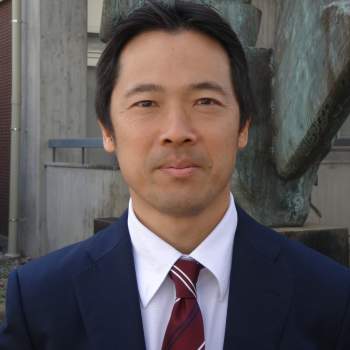On Dec. 8, 2021, Ely Ratner, Assistant Secretary of Defense for Indo-Pacific Security Affairs, testified an issue of Taiwan’s security at a Senate Foreign Relations Committee hearing. According to him, Taiwan is important to the United States for geographical, economic, and ideological reasons. Geographically, he said, “Taiwan is located at a critical node within the first island chain, anchoring a network of U.S. allies and partners – stretching from the Japanese archipelago down to the Philippines and into the South China Sea.” Economically, Taiwan is “a critical supplier of high – technology, including semiconductors,” and ideologically, it is “a beacon of democratic values and ideals.” At a House Armed Services Committee hearing on March 9, 2022, pushed by a member of the committee, Ratner admitted that Taiwan is more important to the United States than Ukraine, and if Taiwan was invaded, an American response to it would be “different” from that to the Russian invasion against Ukraine.
Aside from Taiwan’s economic and ideological importance, its geographical significance must always be the same as long as the United States wants to prevent continental powers from projecting their military might into the seas. As is well known, however, Dean Acheson, Secretary of State of the Truman administration, excluded Taiwan from the defensive perimeter, which he defined in a National Press Club speech in January 1950 extended from the Aleutian Islands to the Philippines.
According to previous studies, Acheson was afraid that American military commitment to Taiwan, which the Nationalists were busy transforming into a bastion to regain mainland China, would motivate Beijing to strengthen its relationship with Moscow. However, what was the problem with the tie between Beijing and Moscow? Acheson did not highly evaluate China’s potential, calling it a “morass.” Previous studies do not explain why Acheson saw it as necessary to wean the “morass” away from the Soviet bloc.
Among Asian countries, what Acheson highly evaluated in terms of national potential was Japan. He called it “the greatest workshop” in Asia in a speech before the Delta Council at Cleveland, Mississippi, in May 1947. In order to put the workshop into action fully and make it contribute to the American containment of the Soviet Union, he thought that it was imperative to make Southeast Asian markets and natural resources available to Japan. From this context, Taiwan was important because, as a Joint Chiefs of Staff paper in November 1948 stated, a power controlling the island would be expected to dominate “the sea routes between Japan and the Malay area.”
It should be noted that Acheson was not concerned about the Chinese communists’ control of Taiwan, per se. They did not possess naval and air forces to threaten the sea routes between Japan and Southeast Asia. Instead, he was concerned about the Soviet Union gaining military bases in Taiwan following the Chinese communists’ control there. To prevent this, he considered it important not to allow the Chinese communists to infiltrate and overturn the Nationalists regime. However, he was so disappointed by the maladministration in Taiwan that he did not believe in their capabilities to tackle the issue of political infiltration. Thus, he had no choice but to avoid stimulating the Chinese communists’ concern about possible American intervention into the Chinese civil war, and to gamble on the possibility that they would leave the Soviet bloc as the Yugoslav communists headed by Marshal Tito did in 1948.
In February 1950, however, Beijing concluded the alliance treaty with Moscow, making Washington realize that its hope for the so-called “Titoism” in China would not materialize at least in the near future. After the conclusion of the alliance treaty, Moscow started providing massive amounts of military assistance to Beijing to enable it to launch a military campaign against Taiwan. In June, amid growing concern in Washington about Beijing’s military threat rather than its political threat against Taiwan, a war erupted in the Korean Peninsula. Immediately after hearing the news of the war, President Truman accepted Acheson’s advice and dispatched the Seventh Fleet to the Taiwan Strait to deter Beijing under the pretense of preventing the expansion of the war.
The history above shows that Acheson was not indifferent to the fate of Taiwan; he was greatly concerned about it. Actually, since expelling imperial Japan from Taiwan in 1945, the United States has never overlooked the possibility that Taiwan could be used as a military stronghold to threaten American interests in Asia. This fact should increase the credibility of the American commitment to Taiwan and strengthen Ratner’s testimony that the American response to Taiwan’s crisis would be different from the response to Ukraine’s crisis.
[Photo by The Senate Foreign Relations Committee]
The views and opinions expressed in this article are those of the author.

Keikichi Takahashi is a professor at Osaka University in Japan, specializing in U.S. diplomacy toward East Asia. He is the author of a Japanese-language book titled “China or Japan? The American Search for a Partner in East Asia, 1941-1954.”

